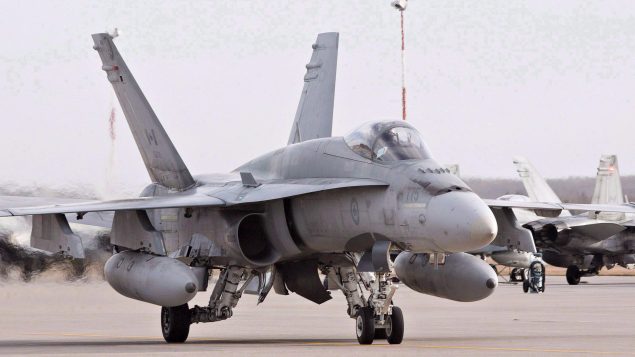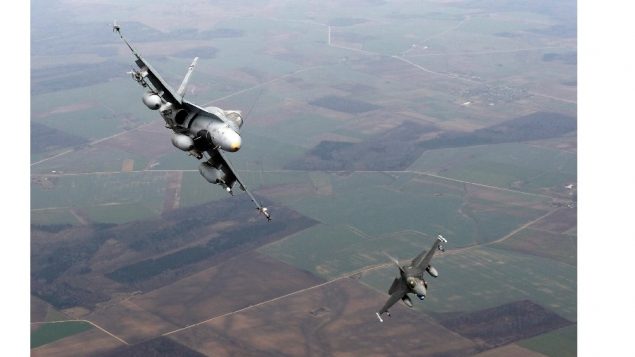Canada’s air force is postponing a major international exercise next year to upgrade its facilities at the air combat range in the western province of Alberta, officials announced Wednesday.
The annual air force training exercise Maple Flag is usually conducted in the Cold Lake Air Weapons Range (CLAWR), a vast, restricted training area of more than a million hectares, located about 70 kilometres north of 4 Wing Cold Lake, Alta.
It draws dozens of air crews not only from Canada but also NATO allies and partner nations.
However, Royal Canadian Air Force commander Lt.-Gen. Al Meinzinger announced Wednesday that Maple Flag won’t be held next year to allow the RCAF to “to re-focus its resources to update the exercise’s mandate and to modernize the infrastructure used during the exercise.”
“With the many technological advancements in military aviation over the decades, there has emerged a need for training methods and infrastructure to advance as well,” Meinzinger said in a statment. “Our adversaries are innovating, and so must we and our Allies.”

A pilot positions a CF-18 Hornet at the CFB Cold Lake, in Cold Lake, Alberta on Tuesday, October 21, 2014. (Jason Franson/THE CANADIAN PRESS)
At its inception in 1978, the primary purpose of the exercise was to re-create the first ten aerial combat missions a fighter pilot could expect to encounter during a conflict, officials said.
Maple Flag has since evolved to include a vast array of aircraft such as bombers, intelligence, surveillance and reconnaissance planes, Airborne Warning and Control Systems (AWACS), as well as fighters.
It now also integrates Air Force elements such as tactical airlift, tactical helicopters and electronic warfare assets as well as Army elements.
Retired RCAF Gen. Tom Lawson, who served as Canada’s chief of defence staff under former prime minister Stephen Harper, said the postponement is driven by recognition that warfare has changed dramatically over the last several years.
“The training that has taken place over the last 40 years at Cold Lake has been excellent in support of wars that took place over Iraq in the 1990s and 2000s, over Serbia during the Kosovo conflict, and even more recently during Libya,” Lawson said. “But we see in Iraq and Syria that air forces had been kind of constrained in their effectiveness because it’s been so difficult to locate and then attack these small elements of ISIS.”
Russia has also brought in the new concept of hybrid war.
“And then as Russia and China introduce stealth into their fighter forces, how is the Cold Lake’s Weapons Range going to be developed to upgrade the training sites to prepare Canadian and allied forces to train for that?” Lawson said.
“I think with all these things the air force has said: ‘Let’s back up a little bit, let’s reinvest what has been focused on old type warfare, let’s get the threats that we need up on the weapons range and let’s make sure that we have everything that we need in our debrief facility back at Cold Lake to make this a really core activity in the future.’”
While the RCAF remains committed to conducting Maple Flag in the future, it’s too early to say exactly what changes will take place or what the timeline will be, said Meinzinger.
Since 1987, the exercise has been cancelled on four occasions, all due to RCAF operational commitments.







For reasons beyond our control, and for an undetermined period of time, our comment section is now closed. However, our social networks remain open to your contributions.